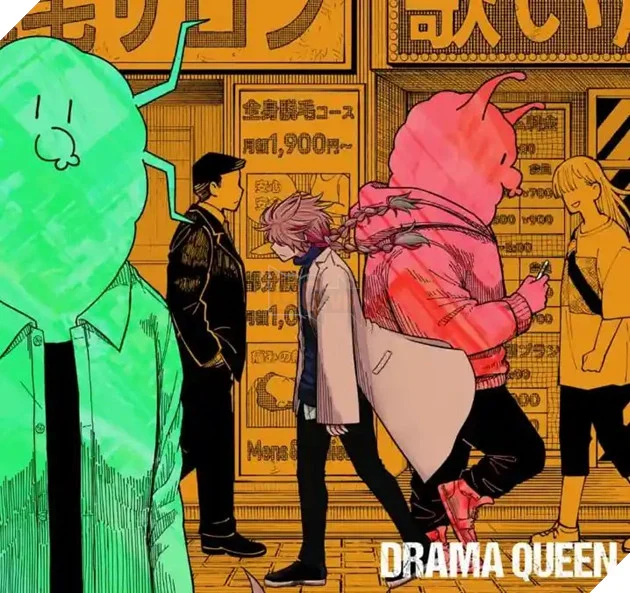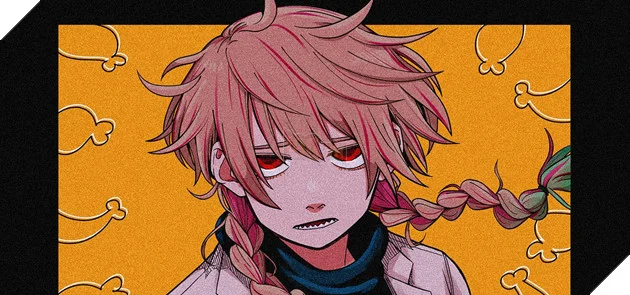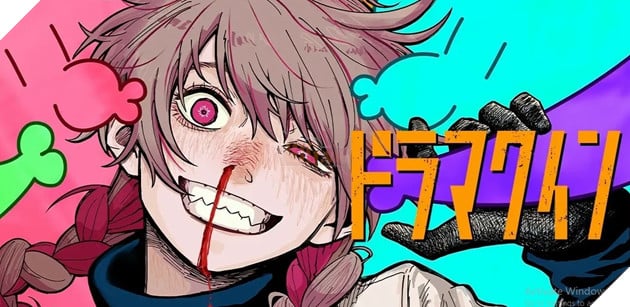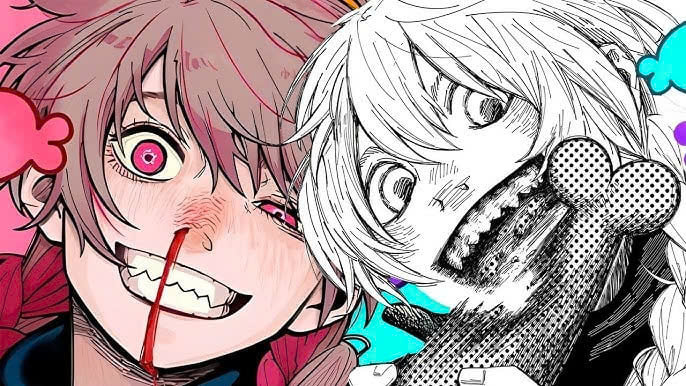“Drama Queen”: The Manga Stirring Up International Debate
Recently, a new manga titled “Drama Queen” has sparked significant controversy within the global manga community. Published on Shonen Jump+ and penned by Ichikawa Kuraku, the manga quickly drew attention for its dramatic plot and vibrant characters. However, alongside the interest in its storyline, sensitive social issues have been raised, particularly regarding xenophobia and racial discrimination, leading to heated debates over the message the series intends to convey.

A Controversial Storyline: Humans and Aliens Coexisting
The setting of “Drama Queen” unfolds in an imaginative world where humans and extraterrestrial beings coexist. However, the relationship between the two species is far from harmonious. The narrative centers around two protagonists: Namamoto, a determined young woman, and Kitami, a man fueled by hatred toward aliens. Both characters have personal reasons for resenting these extraterrestrial beings, and their animosity drives them toward extreme actions.
“Xenophobia” or Hate Crimes?
The crux of the controversy lies in the actions of the two protagonists, who decide to attack and kill aliens they perceive as threats. To further cover up their crimes, they go as far as cooking the corpses of the aliens they’ve murdered. These actions are brutal and extreme, yet the characters justify them through their resentment and the tense relationship between humans and aliens.
The issue escalates as Namamoto and Kitami’s actions are criticized by parts of the fandom for reflecting xenophobic attitudes. Namamoto, for instance, blames aliens for reasons such as “stealing jobs” and being “arrogant,” echoing familiar rhetoric from real-world debates surrounding racism and discrimination against immigrants.

Relation to Real-World Issues: Discrimination Against Immigrants
In reality, immigrants and ethnic minorities frequently face baseless accusations such as “stealing jobs from locals” or being burdens on society, despite their positive contributions. These parallels have led some fans to see reflections of real-world biases in “Drama Queen”. The characters’ actions appear to symbolize prejudices and discrimination endured by immigrants and minorities in modern society.
Some readers argue that the manga is attempting to highlight a societal message about confronting racism and reconsidering how we perceive and treat those who are different.
Community Reactions: Xenophobia or Freedom of Expression?
Not everyone opposes “Drama Queen”. Some believe it is simply a work of entertainment that portrays the darker aspects of society through flawed characters. They argue that, similar to philosophical works like “Death Note”, the protagonists of “Drama Queen” are not meant to be seen as paragons of virtue but as individuals shaped by their circumstances, capable of making cruel and morally wrong decisions.
This perspective suggests that “Drama Queen” is following in the footsteps of “Death Note”, where viewers are not guided to see the protagonists as ideal heroes but rather as complex individuals whose choices lead to questionable and often tragic outcomes. This does not mean the author condones the characters’ brutal actions but rather uses them to explore the intricacies of human behavior in a socially fraught world.

The Subtlety of Addressing Social Issues in Manga
Despite differing opinions, one thing is clear: “Drama Queen” has prompted reflection on sensitive societal issues such as racism and xenophobia. The manga is more than just a tale of human-alien conflict – it opens a dialogue about how we perceive differences and navigate relationships in modern society.
By placing its characters in extreme situations, Ichikawa Kuraku may be emphasizing the dangers of prejudice and impulsive actions in society, encouraging readers to question their own beliefs and behaviors.
Reevaluating the Messages in Manga
In conclusion, “Drama Queen” is not an easily categorized manga. While it contains elements that can be misinterpreted as promoting xenophobia, it also undeniably reflects critical social issues, compelling readers to consider the complexities of how society perceives and interacts with those deemed “different.”
The characters in the manga are not idealized figures but multifaceted individuals whose thoughts and actions are deeply complex and challenging to judge from a simple perspective.
This series will likely continue to stir debates, but it undeniably serves as a thought-provoking work that invites careful and nuanced consideration of the societal messages it aims to convey.
Source: lag.vn

